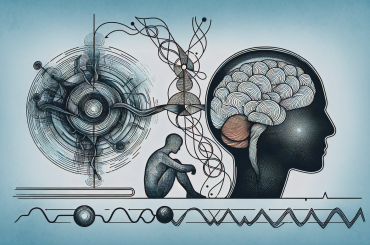The Crucial Role of Online Support in Addiction Recovery and Treatment
When it comes to treating drug and alcohol addiction, addicts need flexible options that suit their diverse needs in order to reach and sustain abstinence/recovery.
According to a 2015 study by Stanford University, drug and alcohol addiction affects more than 40 million Americans over the age of 12, rendering the need for flexible treatment options even more urgent.
It’s no wonder, then, that online addiction treatment and support programs are becoming more and more popular. The country’s biggest online addiction treatment and recovery community is In The Rooms, a platform with more than 500K users, designed to help people who are seeking immediate help from an addiction, addicts in recovery and their friends, family and allies.
Studies show that online recovery programs and communities, including In The Rooms and many others, support addicts in the following ways:
1. Increases Accessibility To Support Outside of In-Person Meetings.
One of the most obvious benefits of online recovery programs and communities is that they offer accessible and convenient support as a supplement to in-person treatment.
According to an article medically reviewed by Dr. Richard Foster on RehabCenter.net, “Online support groups broaden your network of support beyond your region to include people in other countries, across multiple time zones, so that no matter the time of day or night, there is an outlet or a source of support available.” The fact that these options are generally free “makes them an accessible tool used in conjunction with regular counseling sessions.”
The article is careful to emphasize that online treatment options should be used in conjunction with face-to-face support. “While an online option is helpful, building new relationships with people outside of treatment is an essential part of your recovery process,” the author notes.
A combination of face-to-face and online support is ideal for helping addicts achieve and maintain recovery/abstinence. In The Rooms allows addicts to attend online recovery meetings whenever and wherever is most convenient for them—as a supplement to their in-person support. One of the most popular features of the platform is the Face-to-Face Meeting Locator, which helps users find in-person meetings in their area.
2. Attracts Underrepresented Groups.
Studies show that online recovery communities attract groups of people that are traditionally underrepresented in communities that meet in person. In a 2015 study by the Alcohol Research Group, “Multisource Recruitment Strategies For Advancing Addiction Recovery Research Beyond Treated Samples,” researchers found that “media recruiting, which does not rely on a specific recovery path (e.g., formal treatment or 12-step membership), appeared particularly effective at engaging traditionally untapped segments of the recovery community…such as nonabstainers and minorities.”
Online treatment and recovery has the power to increase representation in the recovery community, and provide support to those underrepresented groups that may not have as much access as their more privileged counterparts.
In fact, according to Dr. Svetlana Yarosh of the Department of Computer Science and Engineering who collaborated with In The Rooms, “People who used In The Rooms video meetings were likely to attend almost double the number of peer support meetings than those who only attended face-to-face. Participants…discussed a number of benefits of ITR including immediacy of support, convenience, and diversity of available perspectives.”
3. Reduces Stigma.
The stigma of identifying as an addict is one of the biggest barriers to seeking treatment and sustaining recovery. According to Dr. Adi Jaffe in a Psychology Today article, “Is Online Addiction Help the Future of Addiction Treatment?” “when it comes to traditional rehab facilities, it’s no wonder that people with addiction don’t want to come face to face with a professional, or stand up in meetings, or share their struggles in a group setting.”
Similarly, the 2015 Stanford University study, ““Forum77: An Analysis of an Online Health Forum Dedicated to Addiction Recovery,” notes that “prescription drug abuse is severely stigmatized, even within the medical community…people affected by stigmatized conditions are more likely to seek help from peers and to seek help online.”
Additionally, researchers in a 2014 study by the Alcohol Research Group, “Elements That Define Recovery: The Experiential Perspective,” found that “a greater understanding of positive experience of recovery may reduce stigma attached to working towards recovery because recovery is still highly stigmatized.”
Online treatment and recovery communities combat the personal and societal stigma that addicts face because they enable more anonymity, more representation and therefore more varied experiences to which other addicts can relate.
It is important to note, however, that while the stigma of identifying as an addict prevents some people from seeking treatment, “drug use may represent an identity gain in so far as it brings meaning and belonging that is otherwise lacking in a person’s life,” said Dr. Shahram Heshmat in his Psychology Today article, “Identity and Addiction: Self Identity as a possible pathway to recovery.” “Drug user communities can offer individuals a sense of self-identity and belonging when they are otherwise socially isolated and ostracized,” which “provides self-esteem and self-worth.”
An online treatment and recovery community like In The Rooms not only supports members in handling the stigma they may face as addicts, but also transforms that stigma into something positive, a feeling of group identity and security when they self-identify.
Additionally, a 2017 study by the Recovery Research Institute about In The Rooms found that one of the most common perceived benefits from In The Rooms members is: “Better feelings about being a person in recovery.”
Hear what our members have to say about the In The Rooms community:
4. Supports Sustained Recovery.
One area that needs to be addressed in the substance abuse treatment world is that traditional in-patient, out-patient and 12-step programs don’t always offer addicts long-term support in staying sober.
For example, in the Forum77 study, researchers found that “while [the online recovery platform] Forum77 appears to promote detoxification effectively, we observed that users have mixed feelings about how well it supports sustained recovery.”
The 2015 Alcohol Research Group study acknowledged “the need for ongoing supports for recovery. However, we currently lack an empirical understanding of persons in recovery to adequately inform and evaluate recovery-oriented efforts.”
Online treatment and recovery communities can begin to solve this issue, as they offer long-term community support via a convenient platform that allows addicts to connect with one another, post about their own progress and access recovery resources at any time. Plus, an online space like this gives researchers a way to learn more about addicts in recovery and revise current “recovery-oriented efforts.”
In The Rooms offers addicts both immediate help with addiction, as well as long-term support. According to a study by Recovery Research Institute, one of the top perceived benefits of In The Rooms members is increased confidence to stay abstinent and in recovery.
5. Offers Alternatives to Spiritual-Based Programs
Studies have shown the spiritual element of traditional 12-step programs can be a barrier for some addicts.
According to the 2014 study, “Elements That Define Recovery: The Experiential Perspective,” “the recovery element endorsed by the fewest respondents as definitely belonging in their definition [of recovery] was in the spirituality factor. Other elements containing the notion of spirituality consistently had low endorsement and a relatively high proportion of “may belong in others’ definition” ratings.”
A 2016 study by the Alcohol Research Group, “Comparison of 12-Step Groups to Mutual Help Alternatives for AUD in a Large, National Study,” found that “compared to 12-step members, members of the…alternatives [with online components] were less religious and generally higher on education and income. The alternatives may be especially appealing to secular, highly educated individuals because these alternatives emphasize cognitive–behavioral (i.e., scientifically informed) strategies rather than religious or spiritual change.”
While this evidence shows that some addicts are more inclined to a non-spiritual recovery environment, it is crucial to note that there are plenty of addicts who prefer spiritual-based treatment.
In The Rooms strikes that delicate balance by offering members a variety of options, from traditional 12-step meetings rooted in spiritual teachings, to yoga-based meetings, to casual Q&A sessions and more.
As supported by both formal research and personal testimonials, online recovery options provide addicts with effective support outside of their in-person treatment.
The unique ability of online support tools to increase accessibility, attract underrepresented groups, reduce stigma, support sustained recovery, and provide alternatives to spiritual-based programs—renders online support a worthwhile addition to an addict’s recovery.
References
“Forum77: An Analysis of an Online Health Forum Dedicated to Addiction Recovery,” 2015, Stanford University, Proceedings of the 18th ACM Conference on Computer Supported Cooperative Work & Social Computing.
“Is Online Addiction Help the Future of Addiction Treatment?” Psychology Today, 2018
“Multisource Recruitment Strategies For Advancing Addiction Recovery Research Beyond Treated Samples,” 2015, Alcohol Research Group, Journal of Community Psychology
“Elements That Define Recovery: The Experiential Perspective,” 2014, Alcohol Research Group, Journal of Studies on Alcohol and Drugs
“Comparison of 12-Step Groups to Mutual Help Alternatives for AUD in a Large, National Study: Differences in Membership Characteristics and Group Participation, Cohesion, and Satisfaction,” 2016, Journal of Substance Abuse Treatments
“Identity and Addiction: Self-Identity as a possible pathway to recovery,” 2019, Psychology Today, https://www.psychologytoday.com/us/blog/science-choice/201902/identity-and-addiction.
“The Benefits Of Online Recovery Support Groups,” 2019, RehabCenter.net https://www.rehabcenter.net/the-benefits-of-online-recovery-support-groups/








1 Comment
Doing my best ( Darla ).